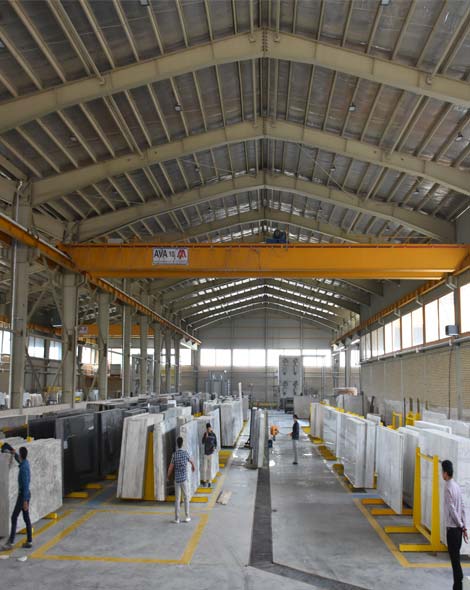- Tell : 09131114998
- Email : info@uranus-stone.com

Building stone and its division
- 1399/08/14 ,
- stone industries Uranus
- 0 Comment
Building stone and its division
crystal stone, Uranus stone industry offers a variety of stones
In this article, we intend to scientifically study the classification and characteristics of building stones:
Based on specific gravity: Heavy stones, stones with a specific gravity of more than 1.8 g / cm3, and light stones are groups of stones with a specific gravity of less than 1.8 g / cm3. Is a cube.
Based on compressive strength: Heavy rocks with a compressive strength of 100 to 1000 MPa. And light rocks with a compressive strength of 4 to 200 MPa.
Based on softening coefficient: If the value of this coefficient is from 0.6 to 1, it is used for building construction.
Click to view the crystal stone image gallery
building stone division
Foundation stones and walls:
Igneous and sedimentary rocks with a softening coefficient of more than 0.7 are used behind buildings and part of the walls that are below the ground. It is necessary to have no clay minerals or inhomogeneous parts and joints and cracks in such rocks.
Stone walls:
Igneous, sedimentary or metamorphic rocks with the following characteristics are used in stone walls.
Compressive strength between 0.4 and 50 MPa.
Its specific gravity should be 0.9 to 2.2.
Its softening coefficient should be between 0.6 and 0.7. And not stone weathered.
Facade stone and floor:
Igneous, metamorphic and sedimentary rocks that have these characteristics are used as building facades:
Its compressive strength is more than 5 MPa
The softening coefficient should be between 0.7 and 0.9.
No joints and cracks in the stone.
Lack of clay minerals and soluble materials in rock
Lack of alteration and weathering
Having a good color
Read more: The difference between marble and crystal stone
Stones that can be used in road construction:
Stones have many uses in road construction, including bridge construction, substructure, paving, iron rail and so on. Types of igneous, metamorphic and sedimentary rocks that have the following properties can be used in road construction.
Compressive strength more than 100 MPa
Softening coefficient more than 0.9
Water absorption rate, less than 1%
Specific weight more than 2.3 grams per cubic centimeter.
Its impact resistance is 15 kg force per cubic centimeter.
Lack of clay minerals, gypsum and water soluble materials.
No alteration and weathering in the rock
Stones that can be used in tunnels and aquatic environments:
The tunnels use granite, diorite, gabbro or basalt with a compressive strength of 100 MPa. The characteristics of stones used in the aquatic environment are as follows.
Lack of clay minerals, gypsum and water soluble materials.
Homogeneity of rock.
Having resistance to high pressures.
Soluble and heat resistant stones:
Stones that are resistant to acids include granite, diabase, diorite, quartzite and basalt. Stones resistant to alkaline solutions include limestone, dolomite, marble and magnesite. Rocks that are resistant to high temperatures are basalt, diabase, and tuff. An important feature of these rocks is having a compressive strength of more than 100 MPa, the absorption rate of which reaches a maximum of 1%.
Click to consult and buy different types of porcelain stones.
. Tags: Chinese stone, Chinese stone sales, Chinese stone application, Chinese
- Marble4
- Marble3
- Marble1
- Marble
- Marble stone
- Granite1
- Granite
- Granite Stone
- 1Chinese
- Chinese stone2
- Chinese stone1
- Isfahan marble
- Isfahan granite
- Travertine1
- Travertine
- Travertine stone
- Isfahan travertine stone
- Stone view1
- Building stone
- Stone facade1
- Stone facade
- Stone cleaning
- Artificial stones
- Natural stones
- Interior decoration
- Cleaning the stone
- Crystal
- Dolomite
- Calcite
- Quartz
- Graphite
- Hematite
- Simonite
- periet
- Manganese carbonate
- Lemonite
- Stone resistance
- Natural stone
- Artificial Stone
- Stone flooring
- Marble of the Emperor
- Dehbid cream marble
- Dehbid marble
- Persian Rose Marble
- Persian Marble
- Persian Rose Stone
- Marshall Black Marble
- Marshall Marble 1
- Black marble
- Marshall Black Stone
- Black Marshall Marble
- Spider black marble
- Spider marble 1
- Black Spider Stone
- Isfahan Chinese stone
- Black marble of Najafabad
- Najafabad marble
- Marble of Najafabad
- Black marble of Najafabad1
- Porcelain stone
- Gallstone
- Bath stone
- Stone toilet
- Aligudarz Chinese stone
- Qorveh Chinese stone
- Qorveh crystal stone
- Sirjan porcelain stone
- Sirjan crystal stone
- Plinth stone
- Duplicate stone
- Gabbro stone
- Gabor
- Black granite1
- Black granite
- Basalt
- exterior view
- Limestone
- crystal
- crystal stone
- chinese stone
